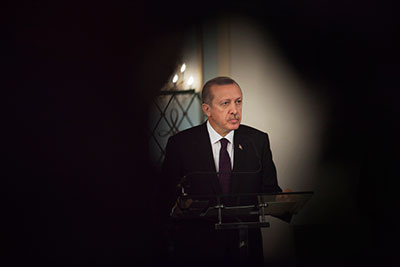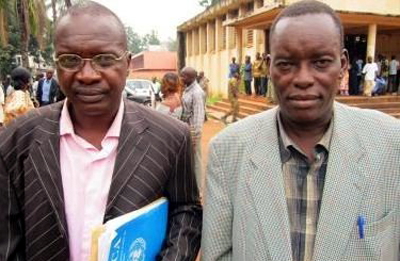Red flags in the European Union press freedom debate
The European Union enjoys waving the banner of press freedom overseas. However, it is sometimes at a loss when it has to define its approach to press freedom among its own member states. Last year, the EU tried and failed to convince the Hungarian government to radically amend its highly controversial media law. The conservative…

Press freedom: Barometer of the Turkish model
With Turkey recently in the spotlight because of its press freedom record–including dishonorable distinction as the world’s worst jailer of journalists–many international observers wonder how Ankara will overcome its image crisis and whether it will choose to resolutely base its broad strategic ambitions on the respect of global standards of press freedom. A new report…
Greek far-right party casts shadow on Europe press freedom
The celebration Tuesday of the 50th anniversary of the Association of European Journalists (AEJ) should have been a joyful and lighthearted affair. Dozens of journalists from all parts of the European Union had traveled to Brussels to share memories, new projects, champagne, and petits fours.
Journalist sentenced to jail for libel in Montenegro
New York, April 30, 2012–The appeals court in Montenegro must overturn a libel verdict and four-month jail sentence given to journalist Petar Komnenic, the Committee to Protect Journalists said today. The Montenegrin authorities, who are seeking to join the European Union, decriminalized libel after the journalist’s original conviction, according to news reports.
Attacks on Zaman test EU-Turkey ties
Last week, suspected supporters of the Kurdistan Workers’ Party (PKK), an armed group listed as a terrorist organization by the European Union and the United States, took their confrontation with the Turkish state to Western Europe, attacking the French and German offices of one of Turkey’s most influential newspapers, Zaman.

Attacks on the Press in 2011: Turkey’s Legal Problem
With the aid of anachronistic legislation and a rigid judiciary, Turkish officials and politicians have curbed free expression by subjecting journalists to endless court proceedings and legal costs. The EU and the U.S. are no help. By Robert Mahoney >> Türkçe
Press freedom issues may keep Macedonia from EU
The European Union accession process has been hailed as the best tool in the arsenal of democracy promotion. By adhering to the acquis communautaire, the EU’s total body of legislation, and to the Copenhagen criteria that define the democratic nature of the EU, candidate countries are supposed to perfect their political transition before joining “the…

EU resolution urges Eritrea to free long-jailed journalists
Eritrea was on the hot seat Thursday in Strasbourg and Brussels. Ten years after a massive crackdown on dissent in Asmara that included the arrests of 11 independent journalists, European institutions have signalled that they are weary of President Isaias Afeworki’s repression.

Central African Republic journalists released, fined
New York, July 12, 2011– Two Central African Republic journalists were fined and released from custody Monday after being jailed for weeks in connection with their coverage of public protests by retired military officers who say the government failed to direct European Union funds to them as intended, according to news reports and local journalists.
